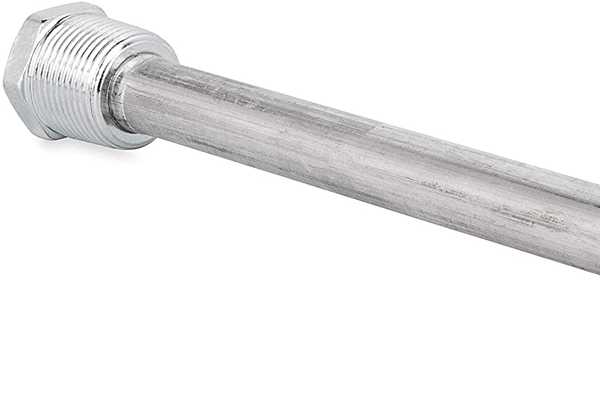
Magnesium vs Aluminum: Is Magnesium Anode Rod Better? (Guide)
When you need protection for your water heater, getting the more expensive anode rod option may be the best way to go. These may cost more but they work better and make sure you do not experience foul odors and other hot water ailments.
Both products have their good and bad points. However, aluminum anode rods seem to produce byproducts that do not dissolve. You will find them at the bottom of your water heater. But they do last longer than magnesium anode rods.
To learn more about these two competing anode rods, just continue to read our article. It has the information you need to know about so you can find the right anode rod for your RV or trailer. These are important parts of your water heater.
Which Is Better Aluminum or Magnesium Anode Rod?

To be honest, one anode rod is better for hard water, and the other is better for soft water. When you are camping in hard water areas, the aluminum anode rod is the best one to have inside your water tank.
It is less reactive than magnesium and also, and aluminum is better for those areas with a lot of sulfur in the water supply. On the other hand, magnesium is very reactive and removes corrosive materials faster than aluminum anode rods can. But that reactive state is better in soft water regions of the country.
The aluminum anode rod cannot work fast enough in soft water making it the inferior choice for those water regions. It turns out that the popularity of magnesium, despite what some owners have said, makes it possible to be the least expensive of the two.
That price difference will depend on the store you buy your anode rods at. The problem with magnesium is that it comes with a shorter lifespan than the aluminum model. You do have a difficult choice to make.
What Is The Difference Between a Magnesium and Aluminum Anode Rod?

There are 4 basic differences between these two styles of anode rods:
1. Their cost- while some people are saying that magnesium is cheaper than aluminum anode rods, that may not be the case. The average cost for anode rods ranges between $20 to $50.
The aluminum anode rod is usually priced at the lower end of the scale.
2. Longevity- aluminum does not corrode as quickly as magnesium. That means that the latter anode rod will not last as long as the former one. That means you will be replacing the magnesium rod more often than the aluminum one
Generally, you have between 3 to 5 years before you need to replace an anode rod.
3. Water tank longevity- this is something you need to consider as well. This situation is where the rubber meets the road. While aluminum may last longer as an anode rod, your water heater may not with that option inside.
The magnesium anode rods protect your water heater better helping it to last a long time.
4. Water quality- the magnesium provides you with better quality of water which in turn, will help keep you healthier. Not only does it help remove chlorine but magnesium has its own health benefits your body needs.
Aluminum leaves sediments at the bottom of your water tank and those sediments cannegat6ively affect your water quality. Plus, having high concentrations of aluminum in your water is not good for your health.
Suburban Anode Rod Magnesium or Aluminum?

The question is quite easy to answer. We checked the Suburban parts website and they only sell one type of anode rod. The one that they have listed is the magnesium option.
This does not necessarily mean you cannot put an aluminum anode rod in a Suburban water heater but it is the best choice. If you want to switch out and go to aluminum, check the threads on the different anode rods. The aluminum option may not have the thread style to fit your Suburban water heater.
Double-check your water heater brand. Atwood, and possibly Dometic, does not need anode rods. They have put a liner inside their water heater options to cut down on corrosion.
We mention this because one owner put their VIN in at Thor’s website and was told that they had an Atwood water heater. When the owner checked the label on his water heater, it said Suburban.
Double-checking will save you a few problems down the road. Not every RV maker's website will have the right information for you.
Best Anode Rod For RV Water Heater

We are going to go out on a limb here and tell you that both styles are the best. The reason we make that claim is that the aluminum is best with hard water and sulfur-laden water supplies.
Then the magnesium is best when you are camping in soft water areas of the country. It might be a good idea to have both on hand to make sure you get the best protection possible for your water heater.
To cut out any sediment the aluminum anode rod produces, you can always add a filter between the heater and the faucets. The best filters will help clean up any sediments your water heater may have.
The part is not that expensive and protecting you and your family is worth the cost.
Some Final Words
Finding the best water heater anode rod may bring surprising results. Since water quality is different in different parts of the country, it pays to have both styles in your parts storage area.
That way you can meet the challenges of the different water systems and make sure your water is at its level best. If you are not going into hard water areas, then stick with the magnesium. You get the best results with that anode rod option.
If you are strictly camping in hard water areas, then go with the aluminum anode rod.

